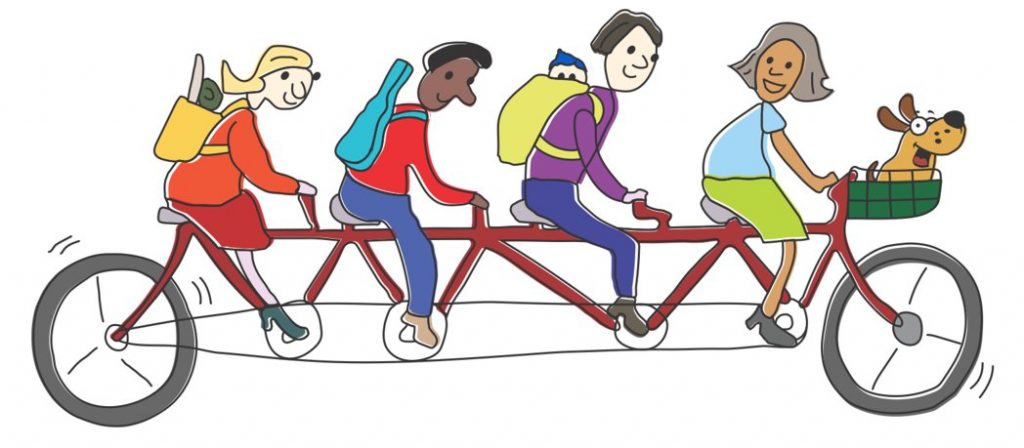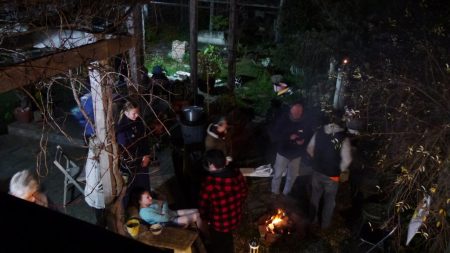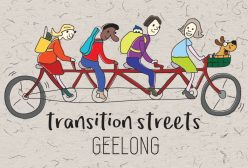
Check out the our new ‘Ecological Footprint’ tool:
https://transitionstreetsgeelong.org/footprint
About Transition Streets:
Transition Streets is a grassroots initiative that focuses on connecting and supporting neighborhoods around the issues of sustainability, giving real meaning to the phrase, “think globally; act locally”.
Transition Streets are for renters and home owners. They are for linking up with our neighbours to make our homes and even our streets more energy efficient, less resources dependent (oil, coal, gas and other resources), more self-reliant with food, less wasteful, healthier and more enjoyable places to live.
Lets turn our streets into neighborhoods.
- Transition Streets is what YOU make it.
- Allows you to measure, and take meaningful action to reduce your environmental footprint.
- Increase your self-reliance and resilience.
- Share tips and techniques for saving energy, water AND money.
- It should be creative, supportive and fun!
To begin, contact Monica Winston on 0439390557 to get together and chat about what to do next. We have strategies to help you find interested neighbours fast. Once you have approximately 6-10 households within easy walking distance, we can supply free guidebooks for everyone. Your group then decides when to meet, and using the book as a guide, take on small or large challenges you can make each month.
Read more on the “Start your Own” group page.

A few words from Monica Winston, the project co-ordinator:
Transition Streets are all about empowerment and connection… with ourselves and what we care about. With our families, our communities and the ecosystems we love and depend on as biological creatures. They are a way of bringing many people on board who are thinking globally and acting locally. A lot of people doing a lot of small steps adds up to big action. As well it’s creative, supportive and fun.
History
“Transition Streets” originally came from the Transition Streets program based in Totnes, England. You can read much more about the ‘Transition’ concept and themes on http://transitionnetwork.org/
